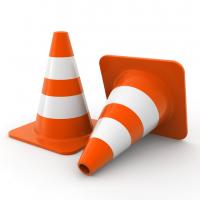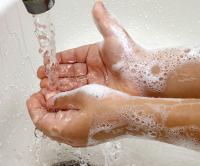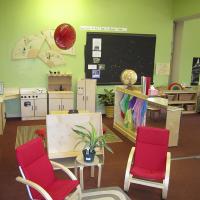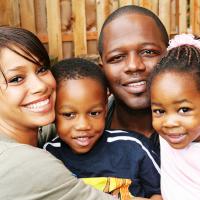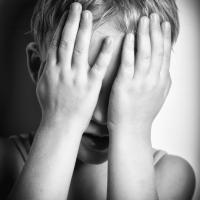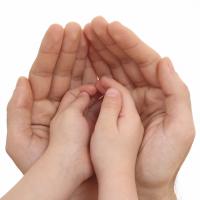Family Child Care
The Family Child Care track is intended for early childhood professionals serving children birth through 12 years of age as home-based child care providers. This track offers training and professional development resources, including written narrative, video, skill building activities, and program tools. The Family Child Care track consists of courses that mirror the core Child Development Associate (CDA) competencies plus a course on preventing child abuse and one on recognizing and reporting child abuse.
Promote excellence in your family child care by protecting children and families from injury and minimizing hazardous risks. In this course you will learn about materials, environments, supervision, safety rules, ratios, sleep practices, child abuse, emergency preparedness, injuries, trips away from the program, and vehicle safety.
Healthy environments are critical for children’s development. In this course you will learn how to create and maintain healthy environments for children from birth to 12 years of age, and how to implement hygiene practices to prevent disease. You will learn strategies to ensure daily healthy checks, as well as strategies to support children’s and families’ mental health needs. The importance of healthy nutrition and physical activity will also be addressed.
Your ability to meet the diverse needs of children and families depends largely on the learning environment in your family child care home. This course will help you plan engaging interest areas and also address how to design indoor and outdoor spaces that support learning. You will also learn how to select developmentally appropriate materials and how to create a flexible, but predictable, daily schedule.
As a family child care provider, you partner with families to promote an active lifestyle. In this course you will deepen your understanding of typical physical development at throughout childhood and how to respond to developmental concerns. You will also learn how to support physical development and plan developmentally appropriate activities for all children.
In this course, you will learn about cognitive development, interactions that promote learning, engagement, what and how children learn from birth to 12 years of age. You will learn about supporting brain development, developmental milestones, the importance of relationships, engaging learning materials, and using research to support children’s learning and development.
Communication skills are vital to the overall learning and development of all children. In this course you will learn about communication milestones and what to do if you have concerns about a child’s development. You will also learn strategies to maintain effective communication with families and how to create a communication and language-rich environment.
Childhood is a time of tremendous growth in creative expression. This course will help you learn how to plan indoor and outdoor experiences that promote children’s creativity, as well as how to select materials for all learners. Your role as a creative family child care provider will also be addressed. You will learn how to ensure that your philosophy and environment cultivate creativity in all children and families.
Children’s sense of self is shaped as they interact with their families, providers, and peers. In this course you will learn about how children develop a sense of self and the importance of resilience in your work as a family child care provider. You will also learn about the influence of culture and ways to support children’s sense of self through experiences, activities, and the environment. Self-care practices and stress reduction will also be addressed.
Social-emotional skills are essential in the healthy development of children. In this course you will learn about social-emotional milestones and what to do if you have a concern about a child’s social-emotional development. This course will also address the impact high-quality environments have on social-emotional development, as well as the role you play as a responsive, nurturing family child care provider.
Positive guidance impacts the healthy development of children. In this course you will learn about typical behaviors of infants, toddlers, preschoolers, and school-age children, as well as effective strategies for preventing and addressing challenging behavior. You will also learn how to create a high-quality environment and developmentally appropriate experiences to maximize positive interactions.
Family members are the most important people in young children’s lives. This course will help you view families as a system, implement family-centered practice, and build positive relationships with families. You will learn appropriate ways to share and collect information with and from families. Supporting families of children with special needs, military families, and families facing other challenges will also be addressed.
In this course you will learn about how your many roles and responsibilities as a family child care provider directly contribute to the quality and organization of your program. Working collaboratively with other providers and community members, the importance of being a life-long learner, and aligning curriculum with assessment will also be addressed. You will learn how to use evaluations to improve outcomes for children and families and practical tips for managing your family child care home.
In this course you will learn about what it means to be a professional family child care provider. Traits of professional providers, ethical practices that reflect professionalism, and the importance of professionalism when working with children and families will be addressed. You will learn how to nurture your own sense of professionalism, how goal-setting and evaluation can contribute to continuous program improvement, and the importance of self-care in your practice.
Approximately 600,000 U.S. children are victims of child abuse or neglect each year. As a family child care provider, you are obligated to recognize, report, and prevent abuse and neglect. This course will help you recognize, report, and prevent child abuse that occurs in the home, in your program, and in other settings. You will learn about your legal and ethical obligation to report suspicions of child abuse and neglect, procedures for making a report, and important steps you can take to build resilience in yourself as well as in children and families.
Your first responsibility is to keep children safe from harm. In this course, you will learn important strategies for preventing child abuse and neglect. These include learning about typical child development and realistic expectations for preschool children, helping children express their emotions appropriately in order to solve social problems, responding positively to challenging behavior, and ensuring the safety of your program space.


